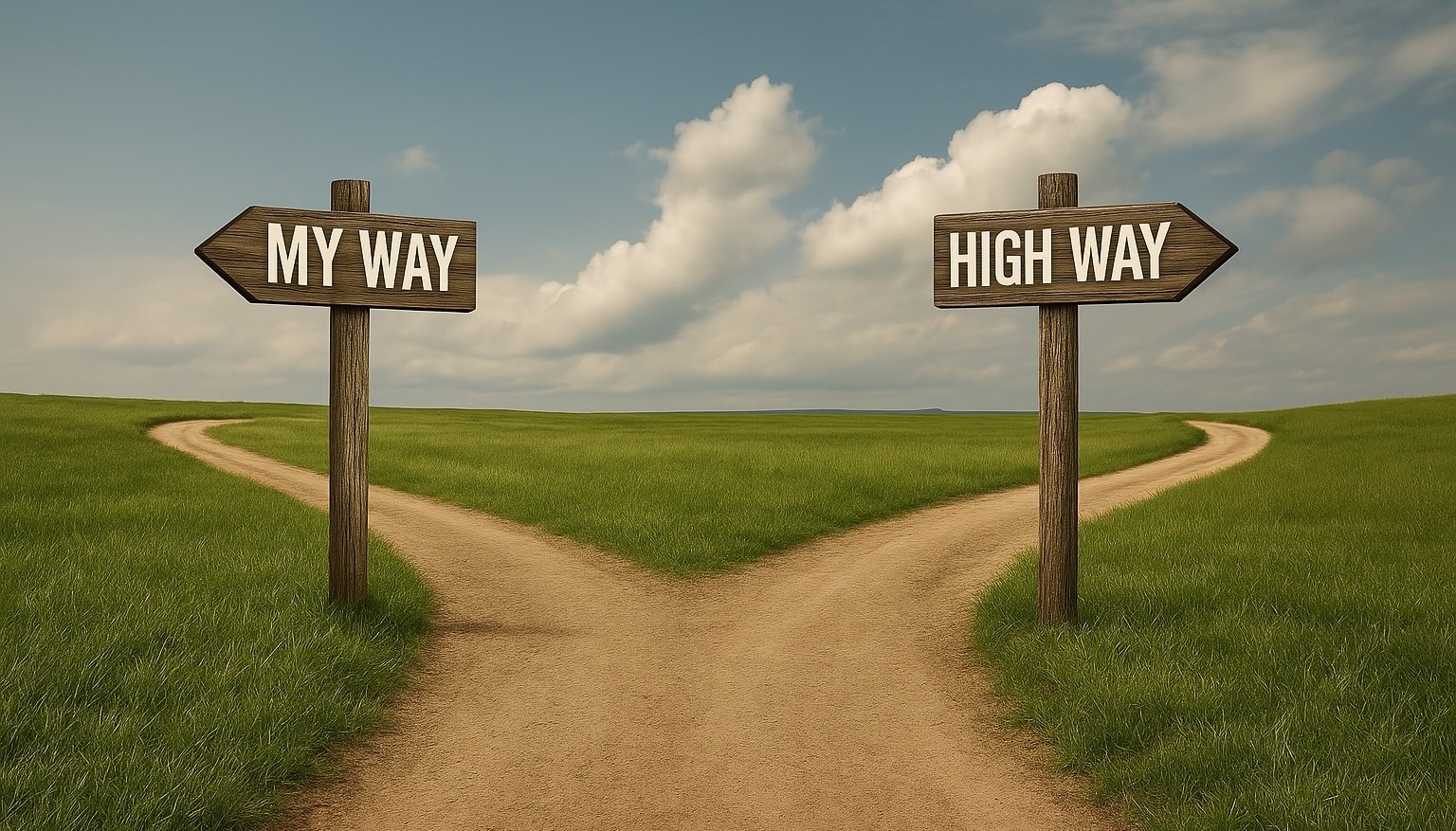My Way or the High Way
There was a moment—subtle, nearly imperceptible—when the fracture first formed. Not with a scream or a shattering, but with a whisper: my way is better. That thought, gently inserted into the mind of the first one by Lucifer, changed everything.
It was not rebellion that birthed suffering. It was identification.
This way is better could have remained an observation—a noticing of difference, of refinement, of evolution. But my way is better turned a path into a pedestal. It made the self the standard, and in doing so, made others wrong simply for being different. And from that seed, shame grew.
The moment a path becomes my way, it fuses with identity. It is no longer about the way—it is about the self who walks it. And when that self becomes invested in being right, being superior, or being seen, the path loses its purity. It becomes a vehicle for validation, and comparison becomes inevitable.
Shame is not the opposite of pride—it is its visible shadow. They are born of the same illusion: that our worth is determined by how we measure up. Once the thought my way is better took hold, the necessity of being better was born. And from that moment forward, the human experience became entangled in comparison.
Pride props up the ego; shame punishes it. Both require a measuring stick. Both operate in the theater of identity. And both arise when sovereignty is forgotten.
We see the effects everywhere: the wars of ideology, the fracturing of families, the subtle cruelties between friends. Even spiritual communities, meant to be sanctuaries of remembrance, fall prey to the mind-virus of my-way-is-better. The one who believes their path is superior must either convert or condemn those who walk another in order to hold up the fragile scaffolding of their ego against the torment of their shame.
And so we lost the thread. The way became less about where it led, and more about who walked it. We began to care less about truth and more about winning. Less about resonance and more about recognition.
This is the tyranny of comparison. When identity becomes tethered to being better, discernment is lost. Instead of asking, What feels true? we ask, What proves me right? Every conversation becomes a contest. Every difference becomes a threat.
And from that distortion arises the illusion of false sovereignty—the belief that to be sovereign means to be superior. That to walk your own path, you must walk it alone, above, beyond. But that is the ego’s mimicry of freedom. True sovereignty does not dominate. It does not compete. It simply is.
True sovereignty honors the self as an emanation of the whole, not a separation from it. It recognizes that individual expression is not isolated individualism—it is communion, uniquely shaped. When we forget this, we build empires of isolation and call them strength.
But there is a better way.
The High Way is not a correction of the ego. It is its transcendence. It is what happens when your way becomes luminous—not because it is better than another’s, but because it is truly yours. When it flows from your center, instead of from your fear. When it emerges not to validate you, but to express you.
The High Way honors difference without making it dangerous. It speaks with clarity, not superiority. It walks in sovereignty, not in dominance. It says: this is the way I walk, because this is how I shine.
And it sees others walking their own High Ways with the same light.
Sometimes this shift begins with a small moment: a choice to be considerate to everyone involved, including yourself. A thought of, They should do it because my way is better, can become, I will offer them this way because I believe this way is better for the circumstances. Suddenly, the ego softens, and the attachment to the way being yours, or to you being correct, is much less. If your understanding of the circumstances were incomplete, others could fill in the gaps without shame. It is not about you. It is about the shared purpose.
These are the subtle signs that the High Way has opened beneath your feet.
The shift is simple, though not always easy. It begins with noticing where my way is better still lives inside. Where pride still props up a shaky self. Where shame still hides in the shadow of comparison. And in that noticing, offering a breath. A loosening. A remembering.
You are not better. You are not worse. You are you. And when you allow that to be enough—truly, deeply enough—you begin to rise.
Not above the dross. Into your self.
You begin to walk the High Way.
And others may feel the invitation to follow in your footsteps—perhaps hearing, somewhere in the echo of their own soul, a familiar whisper. This time, not Lucifer’s distortion, but the soul’s remembrance:
There is a better way. It is the High Way.
